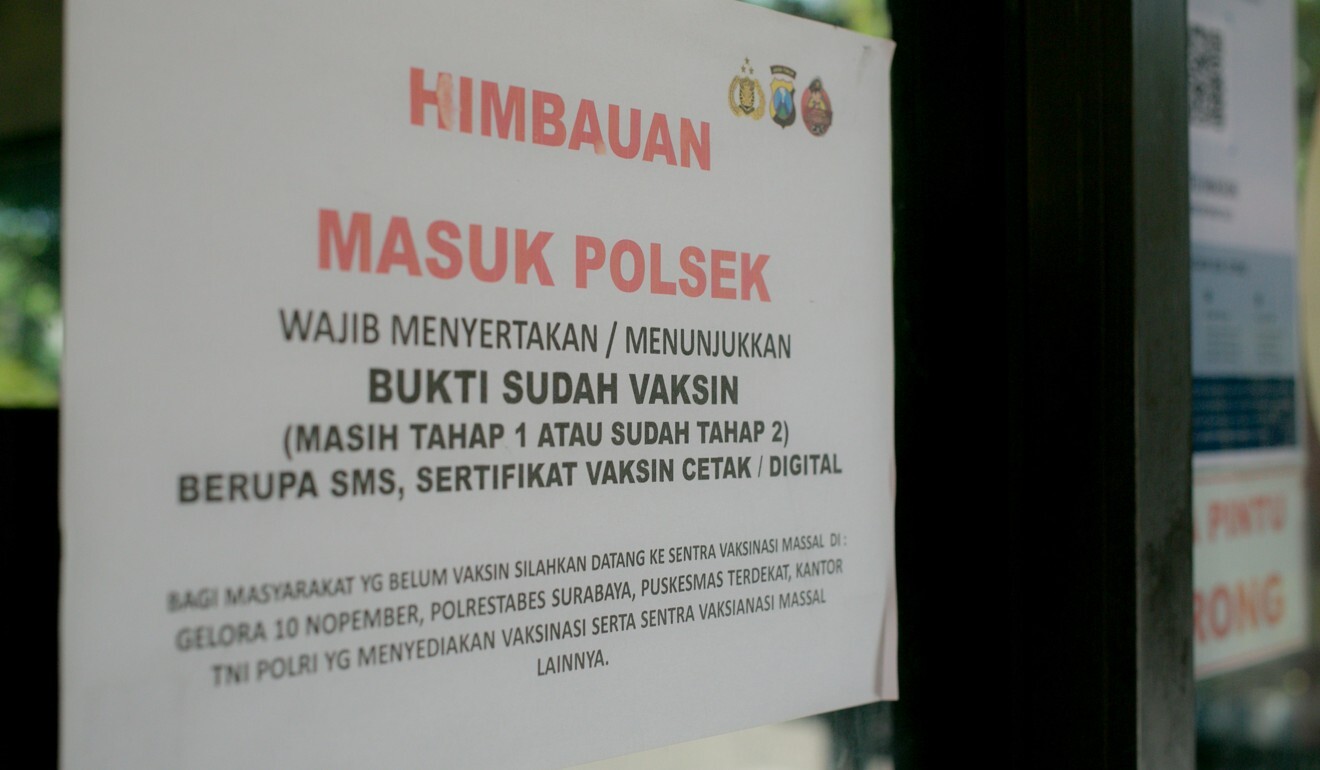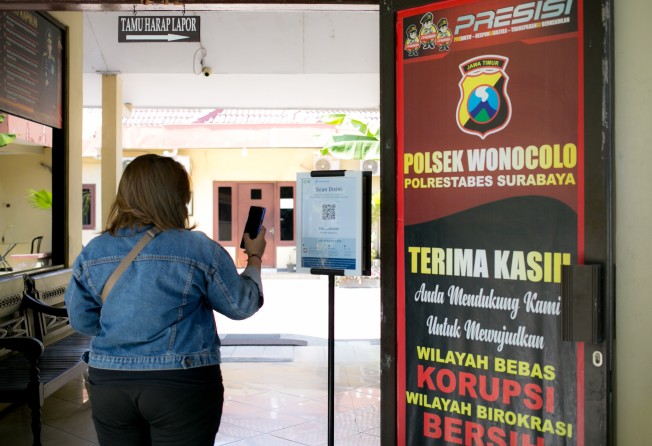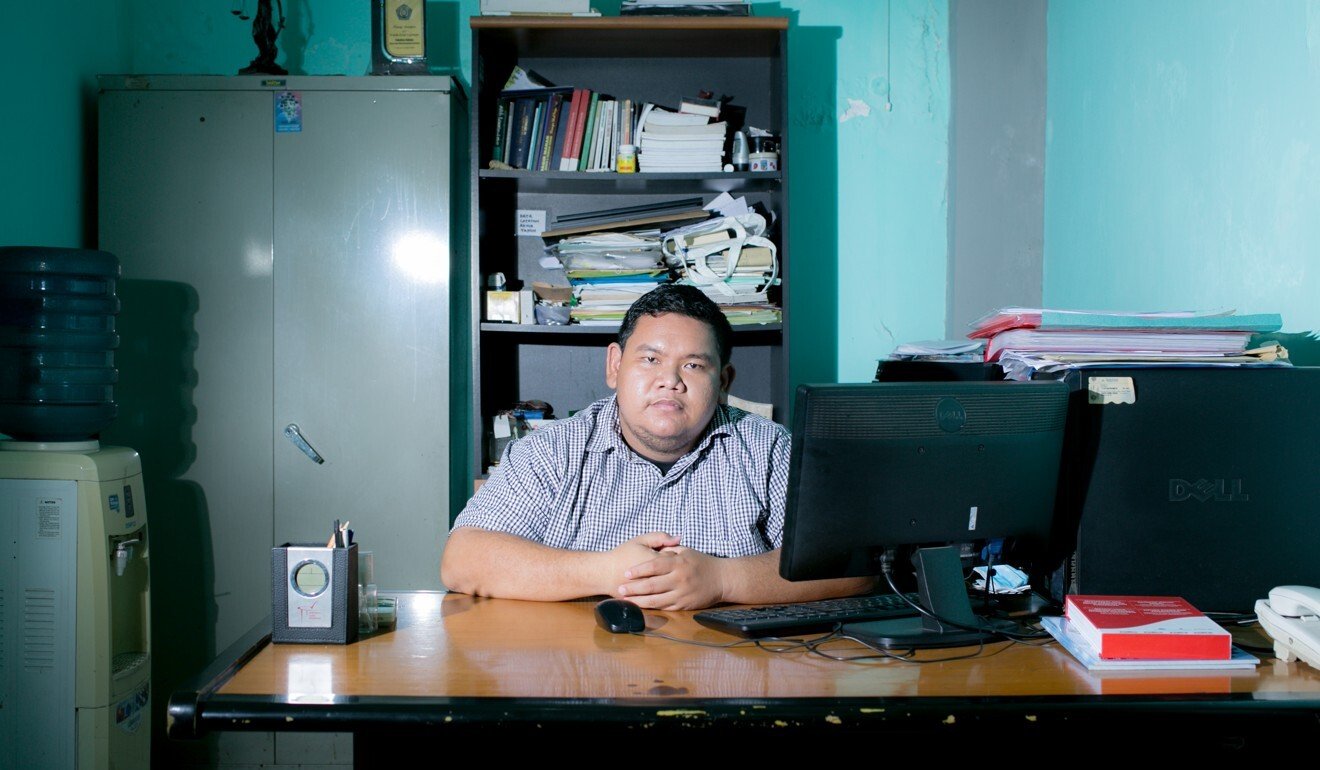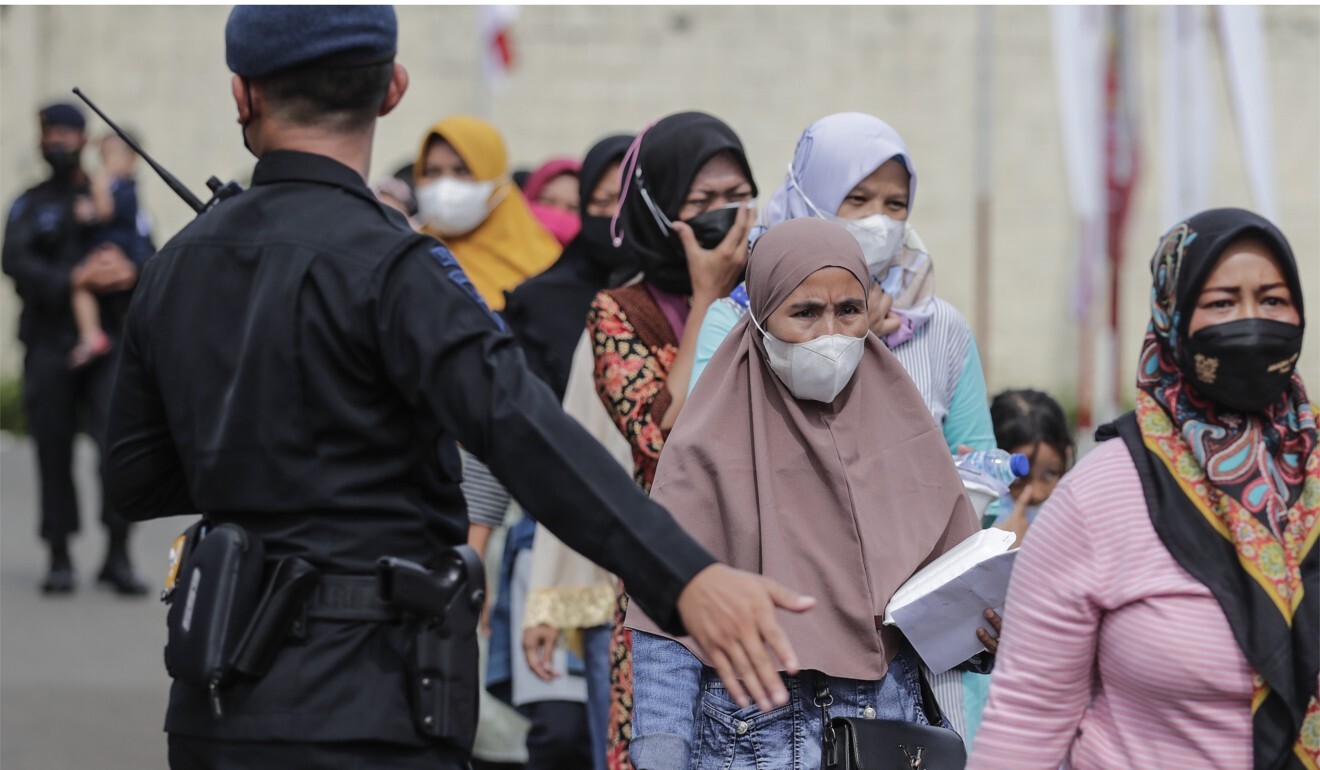
An Indonesian woman tried to report an attempted rape. She was turned away for being unvaccinated
- Legal experts say refusing to allow someone to file a report is a breach of human rights, but police say they were just following government directives
- Only 25 per cent of Indonesians are fully vaccinated, with criticisms about the slow roll-out and questions about the use of Chinese-made Sinovac vaccines

It was late in the afternoon on October 17 when Sarinah (not her real name) heard a knock on the back door of the home she shares with her mother and younger sister in a village in Indonesia’s ultraconservative Aceh province.
Home alone and still new to the neighbourhood, the 19-year-old wondered who would be visiting. When she opened the door, a strange man grabbed her, covered her mouth so she could not scream and tried to rip off her clothes.
What happened next was a bit of a blur as Sarinah fell and hit her head during the struggle, according to legal aid worker Muhammad Qodrat. She was later found unconscious by her mother. In piecing the events together, Sarinah believes she was not raped as the perpetrator heard the sound of her mother’s motorbike and fled.
Yet, she was in for a rude shock the next day when she went to the central police station to make a report, accompanied by her family and representatives from the Legal Aid Institute, which helps clients who do not have the means to hire a lawyer themselves.
Authorities asked if they were vaccinated against Covid-19, and promptly turned Sarinah and her mother away when they found out they were not.
“The police said ‘this is our job, we are allowed to insist that everyone is vaccinated. That is the government’s programme with the police’,” said Qodrat.

Sarinah is not the only one who has had problems reporting a crime during the pandemic.
In the city of Surabaya, Siti Juhariah, 41, experienced a similar situation when she tried to report the theft of her father’s bird, a white-rumped shama. Indigenous to Southeast Asia, the small birds are known for their singing and his was worth around US$350 when it was stolen in July.
When Siti went to the police station, the officers stopped her before she even entered, according to her father Darmono. “They just asked, ‘Have you been vaccinated?’”
Siti had only received her first vaccination at the time, and was told to come back after her second dose. He said it was only after Siti’s experience was picked up by local media that the police took the theft case seriously, although officials dispute this and say they were “just following the government’s directives” on vaccines being required to enter public spaces.
A report cannot be rejected for any reason including vaccine status
“That the report was rejected, that’s not true,” said Police Inspector Ristianto, head of the Criminal Division at the Surabaya Police Headquarters.
“We receive all reports from the public and handle them as best we can. The report wasn’t refused, but we suggested a second vaccine. We run a mandatory vaccine mechanism because we follow the rules from the government according to government advice.”
Ristianto added that an unvaccinated person who wants to file a police report may be represented by family members who have been vaccinated, although in a sexual assault case such as Sarinah’s, in which physical evidence is crucial, it is difficult to see how this would be possible.

In addition to the logistical hurdles, both Qodrat and Abdul Wachid Habibullah, the director of the Legal Aid Institute in Surabaya, told This Week in Asia that refusing to allow a member of the public to file a police report is a breach of human rights.
“A report cannot be rejected arbitrarily for any reason. Even if there is no evidence at the time of reporting, the investigator’s obligation is to help find evidence and investigate,” said Habibullah.
“Moreover when the report concerns vulnerable groups such as women, minority groups or children who are all very vulnerable to being criminal victims … a report cannot be rejected for any reason including vaccine status.”
Habibullah also said there are a number of measures that police can take to limit the risk of Covid-19 transmission at police stations such as erecting plastic dividers between complainants and police and mandatory mask wearing. He added that any delays in reporting a crime may also result in vital evidence being lost.
“Legislation to date mentions vaccines as a service requirement, but not specifically when it comes to law enforcement. What exists at the moment is vaccine requirement to enter public spaces such as malls and parks,” said Habibullah.
Some 70 million Indonesians have now been fully vaccinated, only 25.6 per cent of the population of around 260 million, with the vaccine roll-out being widely criticised for being too slow and prioritising business and tourism areas such as Jakarta and Bali while neglecting other parts of the country.
There have also been questions raised about the use of Chinese-made Sinovac vaccines across most of the country, which are thought to offer lower protection than other vaccines such as AstraZeneca, Moderna or Pfizer-BioNTech.
As a result, Indonesia has started to offer Moderna boosters to health workers, with just over 1 million Indonesians receiving a third vaccine dose to date.

As for Sarinah, she has been so traumatised by her experience – both the assault and her interactions with the authorities – that she is undergoing counselling before continuing her quest for justice.
After news of her case went viral in Indonesia, police officials launched an investigation, despite initially denying the incident.
Qodrat said there was no statutory regulation for vaccine certificates to be “used as a condition for people to get access to justice”.
“The government and the police are trying to accelerate vaccinations [but] human rights should not be limited or reduced under any circumstances.”